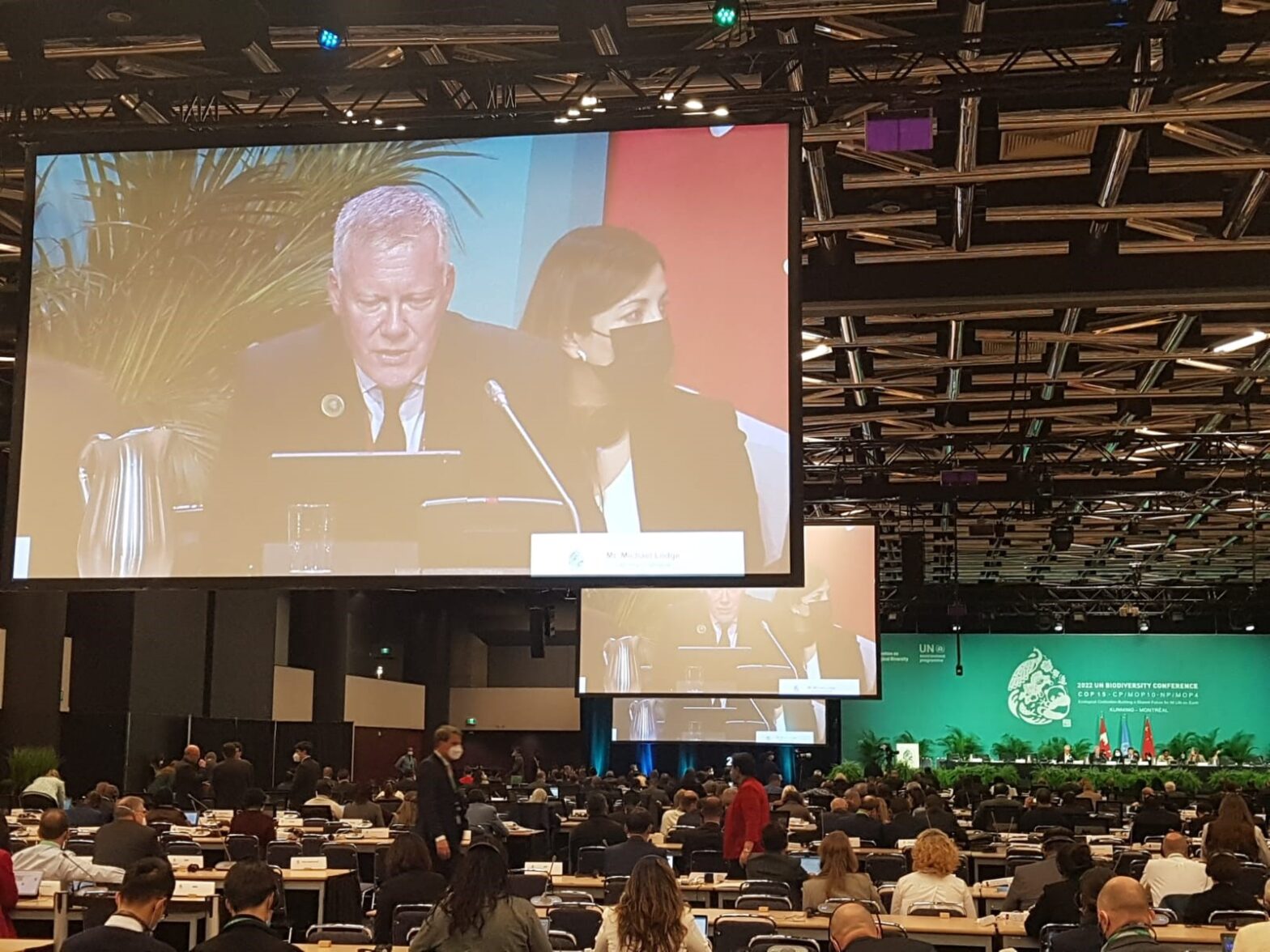From 12 to 16 December 2022, the Secretariat of the International Seabed Authority (ISA) participated in the fifteenth meeting of the Conference of the Parties to the Convention on Biological Diversity (CBD COP-15, Part 2) held in Montreal, Canada. This was the opportunity to engage at different levels in the discussions pertaining to the adoption of the Post-2020 Global Biodiversity Framework and ensure complementarity with other international processes.
In his final statement, the Secretary-General of ISA, H.E. Mr. Michael W. Lodge, underscored that “For nearly 30 years, ISA has played an important role in ensuring the protection of the marine environment and biodiversity in the deep sea for the benefit of all. The processes put in place under the auspices of ISA have benefited considerably over the years from the scientific and technical advice provided through the CBD Secretariat CBD and we value our cooperation very highly.”
Invited to take part in the high-level segment on “Ecological Civilization – Building a shared future for all life on Earth” on 15 December 2022, Mr. Lodge emphasized the critical role played by international organizations to help galvanize urgent action to deliver on the Framework.
“[Because] international organizations are the best vehicles [that] we have to deliver multilateral goals and it is only through multilateralism that we can come together to achieve the best outcome towards shared ambitions,” he said. “Strong multilateralism is fundamental in addressing the daunting global dilemmas that humanity is facing, including biodiversity loss, climate change, increased urbanization, and poverty reduction,” he further added.
Reflecting on the priority identified by ISA and its Members to deliver the mandate assigned to it by the United Nations Convention on the Law of the Sea (UNCLOS), Mr. Lodge listed four main areas: increase in science and data sharing; establishing strong global environmental regulations for seabed activities in the international seabed area; investing in capacity development and transfer of technology and building strong cooperation and collaboration between international organizations based on their respective mandates.
“ISA offers the best example of how the international community can collaborate for environmental protection while at the same time allowing for the sustainable use of a critical shared resource,” Mr. lodge said.
The same day, the ISA Secretariat also organized a side event in partnership with the Secretariat of the CBD and with the participation of representatives from the European Commission, the National Biodiversity Institute of Korea (MABIK), Cameroon, GEO-BON and IOC-UNESCO to present and discuss the work programme of its new flagship initiative, the Sustainable Seabed Knowledge Initiative (SSKI). Launched at the 2022 UN Ocean Conference, SSKI aims to promote global scientific collaboration for generating, standardizing and sharing deep-sea biodiversity data and expertise in order to inform decision-making processes and support the design and implementation of environmental management measures in the Area.
“I firmly believe that ISA’s unique experience in implementing the legal regime contained in UNCLOS – which makes us the only international organization mandated to ensure protection and sustainable use of a global commons for humanity’s benefit – has great potential to support the delivery of the Post-2020 Global Biodiversity Framework and other international processes,” the Secretary-General highlighted in the opening of the event.
“We now have the benefit of more than 40 years of scientific research in the deep sea, with the last 28 years of that work under the multilateral framework of UNCLOS and ISA.(..) These efforts have not only revolutionized deep-sea science, in particular taxonomy, but also increased its capability to deliver biodiversity information at the speed and scale necessary and desirable for further enhancing evidence-based measures to protect deep-sea biodiversity and ensure sustainable management of seabed resources, aligned with the vision and goals of the Post-2020 Global Biodiversity Framework. Our task now is to scale up these actions even more,” he concluded.
Full statement accessible here.


